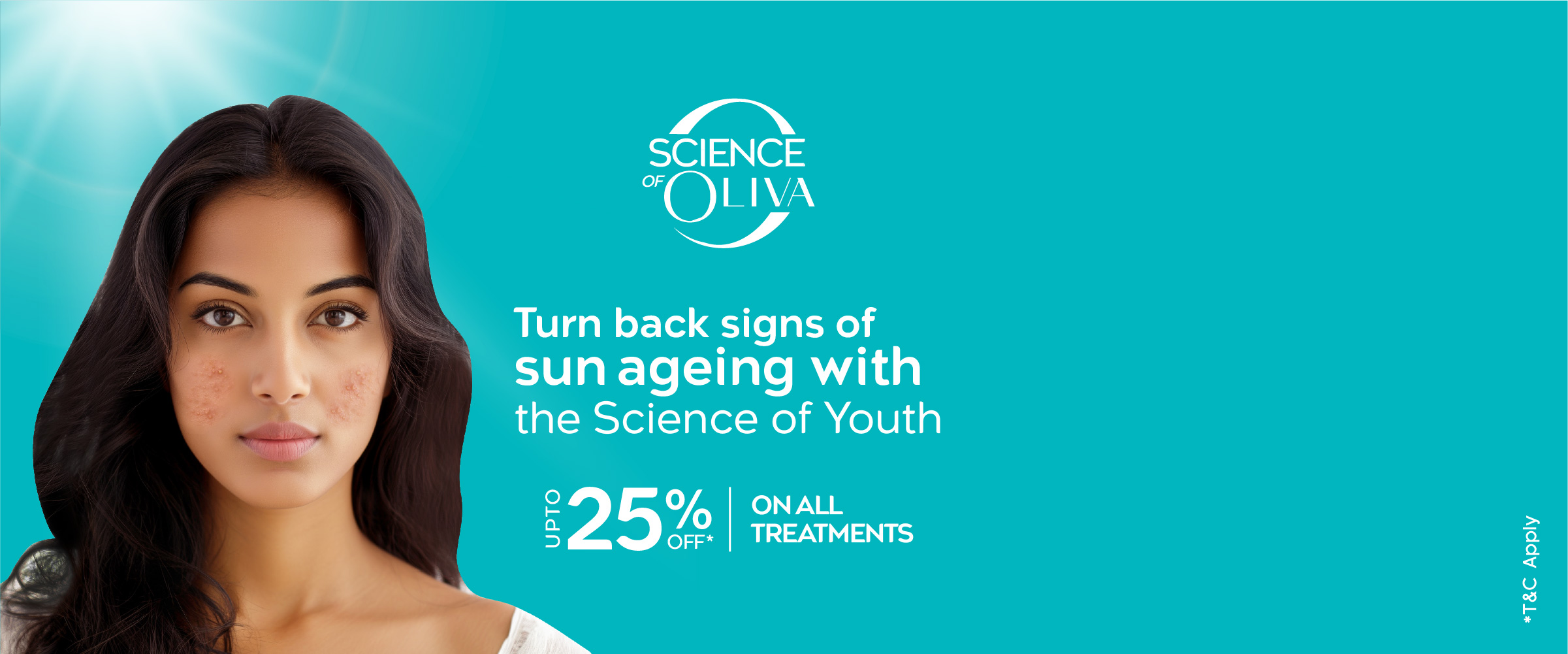Acne Vulgaris: Types, Images, Causes & Management Tips
Highlights
- ● Acne vulgaris affects approximately 200-300 million people in India alone.
- ● It occurs in people between 15 and 40 years of age.
- ● Its common symptoms include bumps, rashes, boils, pimples, redness, and tenderness.
- ● Treatments for this condition include antibiotics, creams, cleansers peels and laser therapy.
Acne Vulgaris - Meaning And Medical Definition:
Acne vulgaris is a medical term for common “pimples”, “zits” or “breakouts”. The skin disorder affects the pilosebaceous gland, i.e. the hair follicle and the oil gland associated with it. The excessive production of natural oil or sebum combined with the buildup of dead cells and bacteria leads to the clogging of the hair follicles. It results in inflammation and redness in the form of acne.
Facial acne is one of the most widespread skin concern that includes breakouts on the forehead, nose, cheek, chin, jawline and even neck. However, pimples may also appear on other areas of the body, including chest, shoulders, arms and back. Acne usually occurs during the teenage phase due to puberty. However, for some of us, pimples may persist or become more severe during adulthood. Let us find out more about the types, causes and symptoms of acne vulgaris before exploring preventive tips and treatment options.
Types And Classification Of Acne:
There are two broad types of acne vulgaris- inflammatory and non-inflammatory. You may suffer from mild, moderate or severe forms of acne. Your dermatologist is the best person to identify and classify acne into the following grades based on the type, severity, and extent of the distribution:
- Grade 1 – Includes blackheads, whiteheads and few papules.
- Grade 2 – Consists of multiple papules and pustules, aggravated blackheads and whiteheads.
- Grade 3 – Comprises of numerous papules, pustules and inflamed nodules occasionally.
- Grade 4 – Constitutes of multiple, large and painful pustules, nodules, cysts and abscesses.
Check out the acne vulgaris pictures to know what the skin condition looks like:
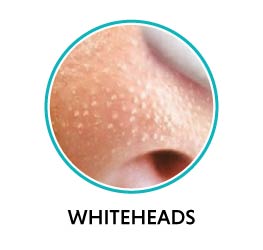
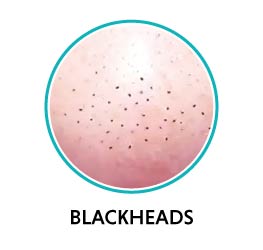
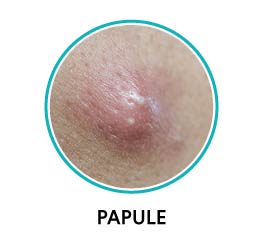
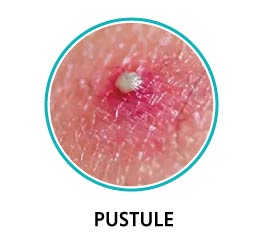
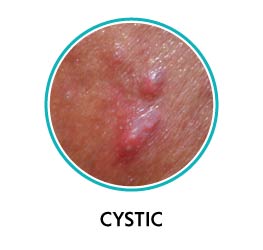
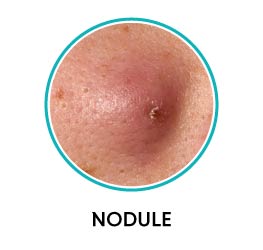
Informative Resources:
Common Causes Of Acne Vulgaris:
Here are the top reasons for acne you need to know-
Internal Causes – It includes the primary factors that play a significant role in causing acne–
- Heredity: If either of your parents had acne, then there is a high probability of you having pimples too.
- Hormonal Changes: Hormonal disorders related to conditions like PCOS can stimulate sebaceous glands to produce more sebum, leading to acne outbreaks. Hormonal changes during puberty, menstruation, pregnancy and menopause too may trigger breakouts.
External Causes – Here are some secondary factors that may play a critical role in irritating your acne-prone skin and aggravating your skin condition. These include –
- Stress: A high-stress lifestyle can trigger the activity of sebaceous glands and can result in excess sebum production and acne.
- Medications: Specific medicines containing androgen, corticosteroids, DHEA, and lithium cause acne as a side-effect.
- Diet: Regular consumption of sugary foods that have a high glycemic index can also trigger acne.
- Improper Skincare: Using skincare and makeup products that contain harsh chemicals or are not suitable for your skin type may clog your pores and cause breakouts.
Informative Resources:
What Is The Pathophysiology of Acne?
Here are the four processes that take place in the pilosebaceous unit of the skin (that comprises of the hair follicle and oil gland) and lead to the occurrence of acne:
- Hormonal changes trigger excess oil or sebum production in areas such as T-zone of the face and neck that have dense sebaceous glands.
- Blockages of the follicles occur due to excess deposition of sebum and keratinocytes (dead skin cells).
- The increased activity of P. acnes bacteria takes place in the clogged follicles.
- The inflammatory reaction of our body’s defence system leads to the formation of acne lesions.
Signs And Symptoms Of Acne:
The signs and symptoms of acne vary based on the type and severity of the condition. However, you may note the following if you have acne-prone skin:–
- Clogged pores with white or transparent lesions
- Redness and inflammation in the form of bumps and rashes
- Painful pus-filled pimples
- Cysts with deep abscesses
- Scar and pigmentation
How Does A Dermatologist Diagnose Acne?
Experienced dermatologists at Oliva can diagnose acne vulgaris by looking out for the above common signs and symptoms during a physical examination. Due to their holistic approach, they may record your family and medical history, lifestyle habits and suggest blood investigations to identify any hormonal imbalance. They will recommend a customised treatment plan based on the underlying cause, type and severity of your acne.
Are You At Risk?
In India alone, more than 10 million people complain of acne every year. People who have a family history of acne vulgaris or hormonal issues like PCOS are more prone to breakouts than others. Also, those of you undergoing hormonal changes due to puberty, pregnancy or menopause have an increased risk of having acne. If you have a stressful lifestyle or poor dietary habits, your probability of having pimples is high. It is advisable to seek medical assistance as soon as you experience an acne outbreak to prevent recurrence and unwanted scarring or pigmentation in the future.
How To Prevent Acne Vulgaris?
Here are the top skincare tips for acne-prone skin recommended by leading dermatologists for the prevention and management of acne:
- Wash your face twice a day with a mild cleanser, especially after a sweaty workout.
- Avoid using makeup or skincare products containing harsh chemicals. Opt for products labelled non-comedogenic and oil-free.
- Never pop, squeeze or pick pimples as this may aggravate the inflammation and lead to permanent scarring.
- Always use a sunblock cream suitable for your skin type before going out in the sun. Do not forget to use it even on rainy days.
- Maintain cleanliness and change your pillowcases every week.
- Stay hydrated to flush out toxins from your body and minimise acne.
Does Self-Care Help?
Self-care may provide temporary relief, but it may not prove effective in the long run, especially in cases of moderate to severe acne, which leads to scarring. If the above tips are not working for you, it is time to seek urgent medical help to prevent permanent scars.
Informative Resources:
- Top 10 Beauty Tips For Acne Breakouts
- Top 10 Mistakes To Avoid Worsening Your Acne Outbreaks!
- Top 10 Acne Myths Your Need To Bust Now!
Professional Treatments For Acne Vulgaris:
Doctors at Oliva have a holistic approach and specialise in providing medico-aesthetic solutions to treat the underlying cause of acne and deliver visible results. They may suggest the following as a standalone or combination treatment to ensure you enjoy long-lasting satisfaction.
Medical Treatments:
- Topical Retinoids: Many leading doctors prescribe topical creams or gels that contain retinoids in conjunction with advanced procedures to unclog the pores effectively and reduce acne.
- Topical Antibiotics: Our medical experts may suggest the application of antibiotic creams to minimise the bacterial activity and inflammation associated with acne.
- Oral Medications: Your experienced dermatologist at Oliva may recommend hormonal therapy for you to treat underlying conditions like PCOS and insulin resistance that may be triggering your acne breakouts.
Advanced Aesthetic Procedures:
- Chemical Peels: Top dermatologists at Oliva apply plant-based extracts for controlled exfoliation of the skin to minimise acne.
Check out the video here to know all about the advanced chemical peel treatment procedure at Oliva Clinic.
- Comedone Extraction: Our medical experts may use specialised tools in a sterile environment to remove mild forms of acne safely and effectively.
- Intralesional Injections: Experienced doctors at Oliva may administer specialised injections to reduce the inflammation due to nodular and cystic acne visibly and alleviate pain.
- Laser Treatments: Leading skin specialists at Oliva may recommend this advanced procedure as part of your acne treatment plan. They may combine it with other modalities to give you the best results.
Prognosis:
Usually, teenage acne clears up on its own by the mid-20s. Adult acne, especially in women, may persist up to the age of 40. It generally needs detailed diagnosis and holistic treatment to subside. Most adults usually develop mild to moderate acne lesions and seeking immediate treatment may help them prevent recurrence and scarring. Acne in its various stages can lead to permanent scars if left untreated during its early onset. Seeking early medical help is advisable.
Delivering World-class dermatology solutions is our mission! Redefining the quality of care is a passion!
How to get started? 🔗Book Appointment📞82978 82978 to enjoy the best results!
Common Questions
- Does Acne Go Away On Its Own?
Teen acne may subside on its own over time. However, adult acne usually requires medical help to diagnose and treat the underlying cause and reduce the risk of recurrence and scarring.
- Is Acne Vulgaris Contagious?
No, acne vulgaris is not a contagious skin condition.
- How Long Does Acne Vulgaris Last?
Acne vulgaris is most prevalent during puberty and may last until the early 20s. However, due to hormonal disturbances, some people may experience adult acne.
- Should I Pop Acne?
No, it is essential to resist the temptation of popping pimples as it may aggravate your skin condition and lead to permanent scars.
- Is There A Permanent Cure For Acne Vulgaris?
No, there is no permanent cure for acne vulgaris. However, by opting for Oliva’s holistic acne treatment, you can minimise your breakouts effectively.
- When Is The Best Time To Seek Help Of A Doctor?
It is advisable to consult a doctor immediately after a breakout to reduce the risk of recurrence and scarring.
- How Soon Can An Acne Treatment Show Results?
You can note a visible reduction in your skin condition after undergoing the first few sessions of acne treatment at Oliva. However, you should complete your recommended sessions to enjoy optimal results.
- Why Am I Getting Recurring Breakouts On Face?
Wrong skincare regimen, poor scalp hygiene and underlying hormonal issues along with genetic propensity and unhealthy lifestyle habits may be responsible for frequent facial breakouts.
- Do All Forms Of Acne Leave A Permanent Scar?
All grades of acne may cause some form of scars. However, moderate and severe acne may involve a higher risk of permanent scarring.
- Are There Any Side-Effects Of Acne Medication and Antibiotics?
No, anti-acne medication and antibiotics do not cause any side-effects when used under the supervision of an expert dermatologist.




